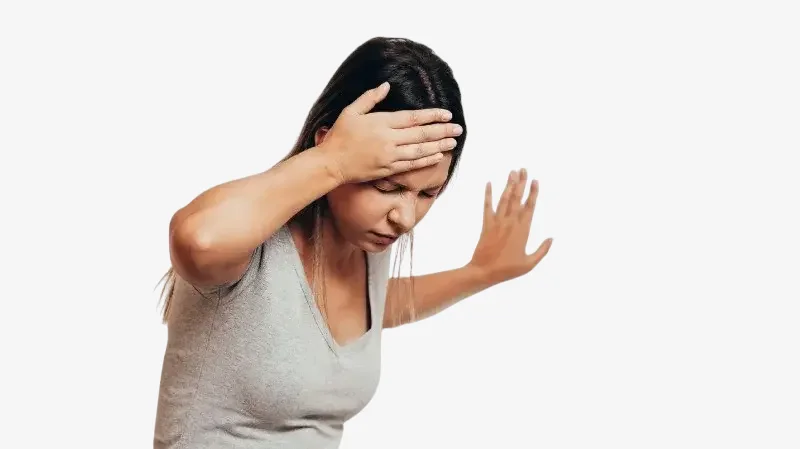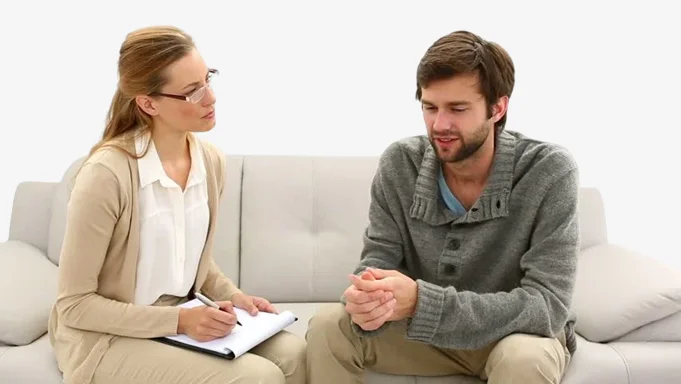Claustrophobia, or the fear of confined spaces, is a feeling of intense and irrational fear of being in small or enclosed spaces, such as a small room or an elevator.
This fear can escalate to a panic attack and shortness of breath, causing the person to avoid any place that might trigger this phobia, thus affecting their daily life in general.
What is claustrophobia
Claustrophobia is a type of phobia in which the sufferer experiences an irrational fear of crowded, enclosed, or confined spaces.
Symptoms may be mild, such as sweating and headaches, or severe, such as difficulty breathing and a rapid heartbeat, and may even lead to a feeling of suffocation.
Causes of claustrophobia
The causes of claustrophobia vary from person to person, and include:
- Having a generalized anxiety disorder.
- One of the parents suffering from claustrophobia.
- Previous experiences of being confined in enclosed spaces.
- Being threatened with confinement in an enclosed space during childhood.
What are the symptoms of claustrophobia

Symptoms of claustrophobia appear when entering a confined or enclosed space, or even when thinking about it, and include:
- Chest pain.
- Sweating and trembling.
- Shortness of breath.
- Dizziness and a feeling of suffocation.
- Rapid heartbeat.
- Fear of fainting or dying.
- Avoiding certain places such as elevators and airplanes.
Treatment methods for claustrophobia
Treatment for claustrophobia depends on the severity of the symptoms and the person's response to treatment, and includes:
- Medication.
- Psychotherapy.
- Behavioral therapy.
- Virtual reality therapy. Gradual exposure therapy.
Complications of claustrophobia
If claustrophobia is not treated properly, it may lead to bothersome complications such as low self-esteem, recurrent panic attacks, and the development of anxiety disorder or depression.
Tips for coping with claustrophobia

The following tips are helpful in reducing the impact of claustrophobia symptoms:
- Practice deep breathing exercises.
- Avoid escaping from confined spaces.
- Try gradual exposure to enclosed spaces.
- Talk to a therapist if symptoms worsen.
When should you see a psychiatrist
You should see a doctor or psychiatrist when the feeling of fear affects your daily activities, or if you experience recurrent panic attacks or any of the complications mentioned above.
Can claustrophobia be cured
Yes, claustrophobia can be gradually cured with psychotherapy and gradual exposure to enclosed or confined spaces.
Frequently Asked Questions about Claustrophobia
What causes shortness of breath in enclosed spaces
Shortness of breath occurs as a result of a rapid heart rate and hyperventilation. This does not mean a lack of oxygen, but rather a psychological and physical reaction resulting from fear.
What is the name for the fear of confined spaces
It is called claustrophobia, fear of confinement, or fear of enclosed spaces.
Is claustrophobia hereditary
Yes, the fear of enclosed spaces may be inherited from one of the parents, but it is not the only cause of this phobia.
Article Summary
Claustrophobia, or the fear of confined or enclosed spaces, is an irrational feeling of intense fear resulting from being in a cramped or enclosed area.
It is often caused by a previous experience of confinement or by having a parent who suffers from this phobia. This phobia should be treated by a doctor or a qualified mental health professional to avoid complications and to reduce its symptoms.